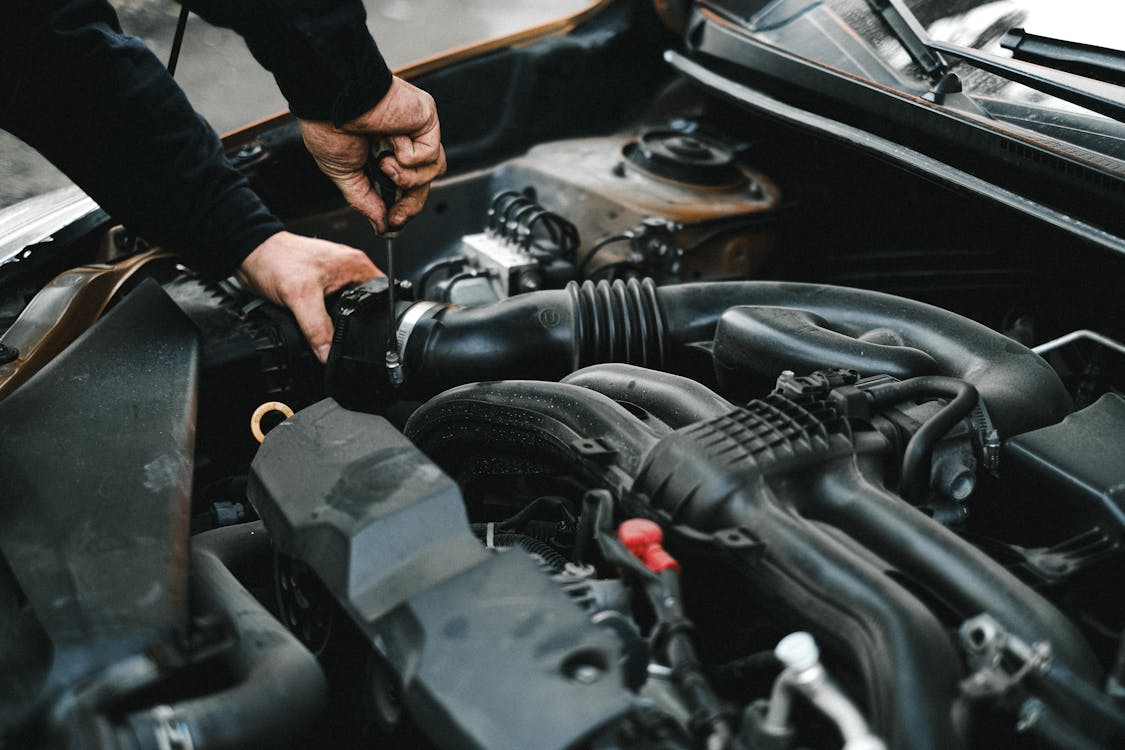Many myths surround diesel engines and the technology behind them. Some of these myths include the myths that Diesel engines are polluting, require frequent maintenance, and are expensive to maintain. However, there is only some simple maintenance to perform to keep them ticking along nicely.

How Do Diesel Engines Work?
Diesel engines are unique because they use compression ignition, which means that fuel is burnt in a closed chamber. This technology has reduced fuel consumption considerably and allowed manufacturers to achieve very high power output levels from the same amount of fuel. Not only is this good for the environment, but it also preserves the engine’s health and longevity.
Diesel engines can also run at higher temperatures than their petrol counterparts, which means that they can handle heat better. However, diesel engines are notorious for being less forgiving when it comes to neglect. If you are not familiar with the maintenance routines for your particular model, then it is best to leave them to the professionals. Nevertheless, you can save considerable amounts of money by understanding a few tips to keep them running in good working order.
1 Keep Them Clean
The type of vehicle that uses a diesel engine is the sort that will often travel off-road over dirt and dust. Regular cleaning of your machine is therefore highly recommended to maintain its optimal performance. Of course, there’s no need to go overboard, but if you can find an old toothbrush to clean in and around all of the nooks and crannies, you should be fine. You might also want to consider using a degreaser to clear away some of the more stubborn grease and gunk that has a habit of accumulating.
2 Monitor Your Fluids
For your vehicle to function, it needs fluids. They are also required as a lubricant to keep the car running smoothly over time. Therefore, maintaining proper fluid levels is vital for your vehicle’s fuel economy and longevity. Engine fluids are a critical component of all engines, and some of the more important ones to keep an eye on include:
- Engine oil: Engine oil reduces friction and wear and tear by lubricating the parts of internal combustion engines.
- Coolant: Engine coolant is made up of antifreeze, water, and corrosion inhibitors. It prevents the engine from overheating. Since engine coolant is necessary to prevent the engine from overheating, the composition of engine coolant is essential.
- Power steering fluid: Power steering fluids are made from specially blended synthetic fluids designed to meet vehicle manufacturers’ needs.
- Brake fluid: Brake fluid is used as a hydraulic fluid that transmits the energy stored in a vehicle’s brakes to the wheels.
- Transmission fluid: Transmission fluid is a lubricant that’s used in the transmission of rotating machinery.
3 Regularly Change Your Filters
Changing oil filters may not be the most glamorous task out there, but it plays a significant role in the quality of your vehicle. As the old saying goes, “An ounce of prevention is worth a pound of cure.” Changing your oil filter when due is an easy way to improve the quality of your vehicle and extend its lifespan. Changing your oil every 3,000 miles or 3 months is a great way to help keep your car in tip-top condition and for generally maintaining diesel engines. On the contrary, if you never change your oil or don’t change your oil often enough, your vehicle will start to experience serious issues. On a similar note, if you start changing your oil too late or don’t change your oil at a regular interval, you might end up damaging the engine.
4 Regularly Change Your Oil
Oil changes can help prevent engine damage. You can see how much the oil gets used as you change it every time. This helps find any problem areas before they become more significant problems. Also, routine oil changes help improve fuel efficiency and protect your engine from rust, which can be a substantial cause of engine failure.
5 Keep Your Exhaust System Clean
It is always important to check your diesel engine’s exhaust system during regular maintenance. Exhaust systems play an essential role in the overall performance of your vehicle. There is an increasing complexity associated with these exhaust systems, including diesel particulate filters and diesel exhaust fluid systems developed to meet EPA standards.
6 Don’t Forget To Check Your Radiator
Cooling is provided by a truck’s radiator, which transfers heat from the engine to the air. A faulty radiator can reduce heat transfer and, consequently, result in an overheated diesel engine because diesel engines produce a great deal of heat while operating. Overheating can cause the engine to become a write-off.

By following a simple maintenance routine, you can keep your diesel in top condition. As long as you keep the essentials in good shape, your engine will serve you well for years to come.
